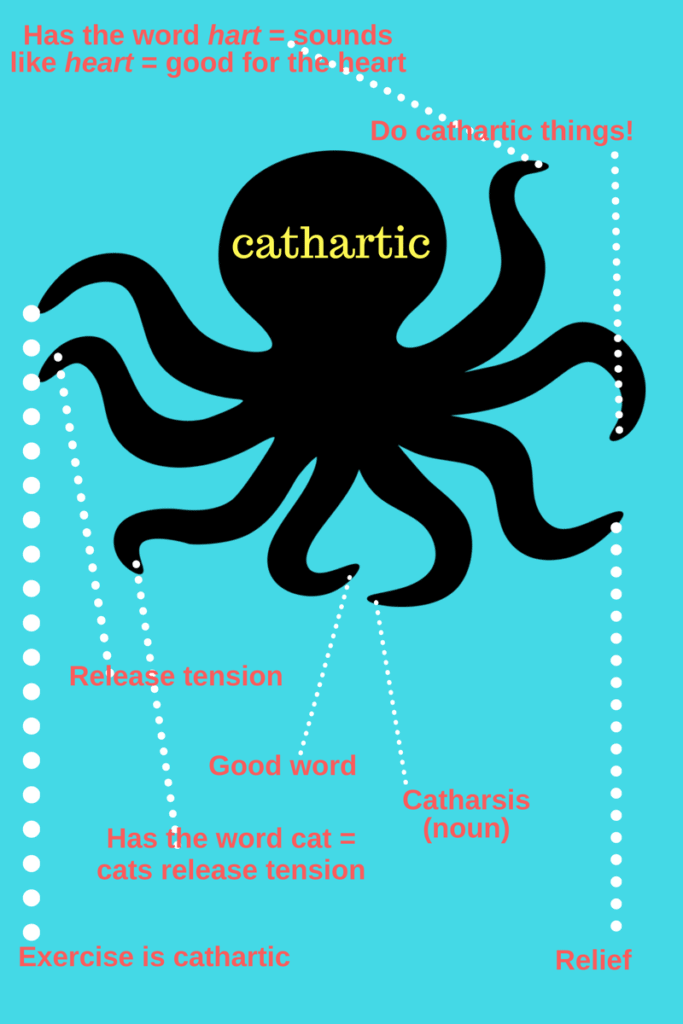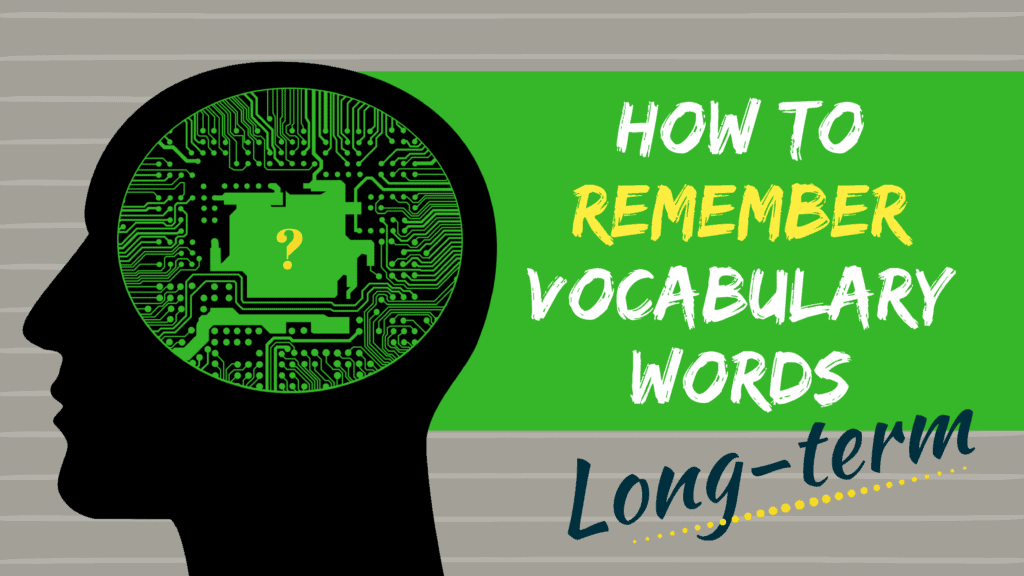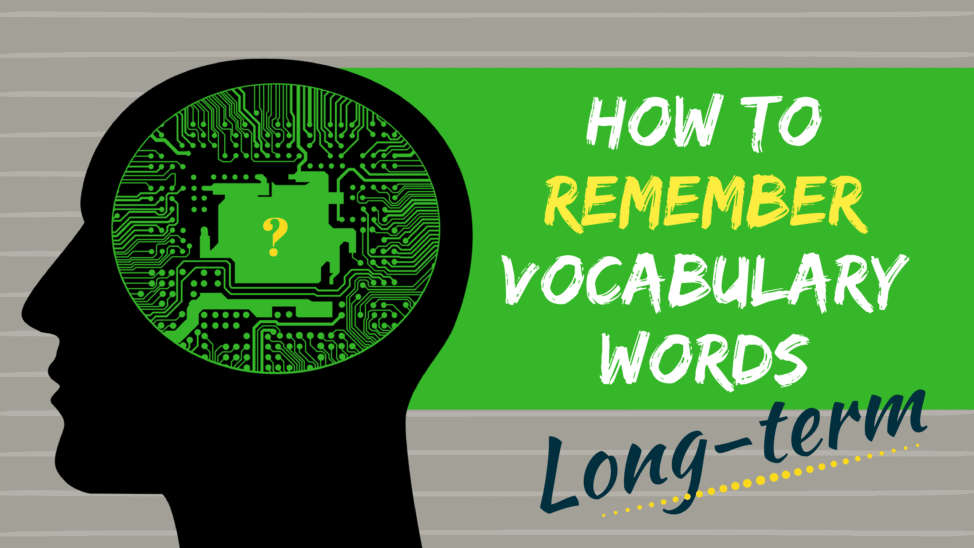How NOT to remember vocabulary words long-term
The worst way to study vocabulary words is to list out the words and definitions on a sheet of paper and study that paper.
What? You do this?
Of course! Most students do. But if you think this is how to remember vocabulary words long-term, you are probably just forgetting the words the next day. Yes?
How to remember vocabulary words long-term
Here’s the study hack: Think about the word. Yup. Think about the word.
I know – that sounds lame. But bear with me here.
If you study vocabulary by just looking at a word and its definition (even if you do this over and over again), you are only accessing that word from ONE angle. You are only seeing and understanding ONE side of the word. You are only giving yourself ONE handle by which to grab on to the word and remember it. Not cool. And definitely not effective.
So like I said, the best way to study and remember a new vocabulary word long-term is to think about it. Work with it. Talk about it. Picture it. Connect it to something else you know. Think think think!
When you think about a word, you are coming at it from different angles, which increases your understanding of the word as well as your chances of remembering it long-term. When you think about a word, and when you relate it to something you already know, you are giving it context and a “place to live” inside your brain. In a way, you are giving yourself more handles by which to grab on to the word and remember it.
Side note: If you struggle with studying and remembering information other than vocabulary words, use these 3 memory-study tips. For more tips on how to study vocabulary words, use these vocabulary study tips.
At the risk of sounding kind of lame, you want to think of your word like an octopus: the more “legs” you give it (ie: the more ways you think about the word), the more ways you’ll have to hold on to it (remember it).
Let’s look at an example:
Take the word cathartic. If you write cathartic on one side of a piece of paper and “providing psychological or emotional relief through an act of purging” (the definition of cathartic) on the other side, your only chance of learning that word is if you memorize the definition.
However, if you think about the word, you’ll remember it better. This is what “thinking of the word” could look like if you were get inside my head:
Cathartic is a good word. We like things that are cathartic. Going for a run is cathartic because I feel better afterwards. Cathartic has the word cat in it, and petting my cat helps me release emotional tension, so petting the cat is cathartic. When I feel anxious I should try to do something cathartic to feel better. When I feel better, I’ve reached catharsis. Catharsis is the state of feeling better after having released tension. We all have different ideas of cathartic activities. Cathartic has “hart” in it which sounds like “heart” — so something that’s cathartic is going to make our hearts feel letter. Cathartic also has “art” in it, and I like to paint when I’m stressed, so making art is cathartic too. Hm, I’m stressed, so maybe I can go do something that’s cathartic.

Give your word LEGS by thinking about it from different angles. You’ll have a better chance of remembering the word long-term.
To take this one step further, I could try to use cathartic three times over the course of the day. Just by forcing myself to use the word three times, I am thinking about the word. I’m thinking Is now a good time to use it? Or Let’s see if I can pop the word into this conversation with mom. Or Crap, I’ve only used the word twice so far; time to use it one more time! And every time I think about the word, I am making more handles by which to hold on to it.
Word learning happens in four stages, so if you’re trying to learn how to remember vocabulary words long-term, it can be helpful to know these stages:
(Here’s some historical background about the four stages of word-learning, if you’re interested. If not, that’s cool.)
- Unknown word: You don’t recognize it
- Initial recognition: You’ve seen or heard the word before, you might be able to pronounce it, but you don’t know the definition
- Partial word knowledge: You know one common definition of the word and can use it in a simple sentence
- Full word knowledge: You know more than one definition of the word and can use the word in various contexts
To remember vocabulary words long-term, you need to get to the fourth stage. If you get to this stage, that means you have a full grasp on all the word’s “handles” and you are not going to let it go (forget it). To get to the fourth stage, you need to think about the word a lot, as I’ve described.
If you only make it to the third stage — partial word knowledge — you might be able to pass tomorrow’s vocabulary quiz, but you will forget the word nearly right after the quiz.
So remember, the study hack (actually, more like science!) for how to remember vocabulary words long-term is to think think think about it. Break past the the third stage. If you do, then that word is yours for the rest of your life.
- Looking for more study tips? Here are 10 ways to study anything.
- Obsessed with using flashcards to study vocabulary? Make sure you’re using flashcards the right way.


